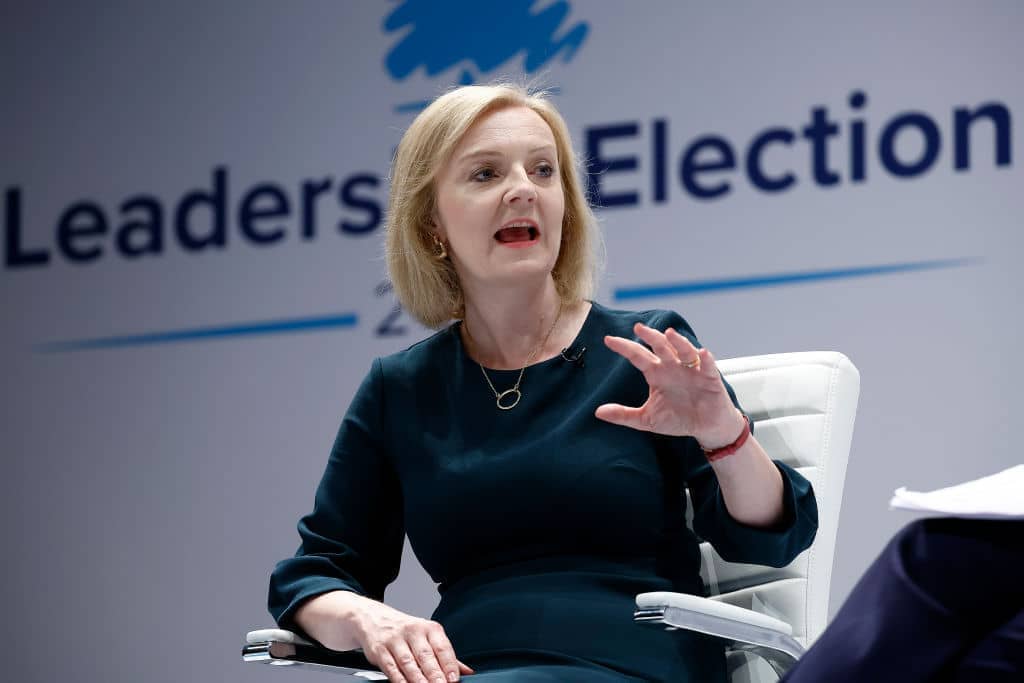Last night’s Tory leadership hustings in Perth saw Liz Truss and Rishi Sunak interrogated on their plans to tackle the energy crisis. As with other occasions on which they have fielded this question, neither of them gave particularly convincing answers. Both candidates have struggled to articulate an energetic government response to crippling increases in fuel bills for households and small businesses. At a time of acute anxiety for voters, when they are looking for reassurance, the message they are hearing from the Tories is that there’s only so much the state can do and it’s not very much at all.
This pall of Whitehall impotence hangs even more heavily over Scotland. During the Q&A session with party members, Truss was asked twice about her earlier statement that expanding energy capacity, alongside tax cuts, was the answer to combatting escalating fuel costs. The first question was about the role of nuclear power and the second shale gas but both presented the same teaser: how would she deliver the benefits of either to Scotland when the SNP-Green Scottish government is opposed to both. That matters because planning permission for such things is one of the many areas foolishly devolved to Holyrood.
Truss’s answer on both fronts was telling. On nuclear, she said: ‘We do need nuclear power and I will always seek to work with the Scottish government; I want to have a constructive relationship with the Scottish government. But our priority has to be delivering for the Scottish people and for the United Kingdom.’
Regarding governing in the interests of the whole UK, Westminster sounds like the Little Britain sketch: Devolution says no
Asked by the moderator, Colin Mackay, how she would ‘get round the planning permission situation’, Truss quipped: ‘I will use my arts of persuasion to get them on board.’
On shale, she said of the Scottish Government: ‘On the one hand, they’re saying people should have lower energy bills and, on the other hand, they’re refusing to back anything that will actually help deliver low energy bills.’
Pressed once more on what she would do about that situation, she said: ’I will look at ways that we can persuade them that, actually, these are important ways of transitioning to net zero.’
These were questions not only about a worsening economic crisis but about domestic energy security. The West is facing the greatest threat to its energy supplies since the 1973 oil crisis. The ability of the UK government to ensure necessary capacity and avoid being blackmailed by Russia is a matter of national security. Listening to the frontrunner for Prime Minister gabble about trying to ‘persuade’ a devolved government to allow her to deliver energy security, it hit home just how severely devolution has weakened the UK government. There was no talk of reserving planning permission back to Westminster or legislating to allow a national response to a national emergency. Even at times of economic and security crisis, devolution remains a one-way ratchet. Powers must always flow from Westminster to Holyrood for the good of the Union; they may never go in the other direction, even for the good of the UK.
It’s hard to imagine any other major economy giving a separatist movement a veto over whether central government can keep the lights on. But it is not the only way in which Whitehall has been emasculated by devolution. An audience member asked Sunak about supporting the hospitality industry through the tax system.
The former Chancellor explained: ‘Other than VAT, which you mentioned, many of the direct levers are devolved, which is frustrating. So, whether it’s business rates for the hospitality industry, whether it’s planning reform for our high streets, those things, unfortunately, are not within my purview.’
‘Frustrating’. ‘Unfortunate’. ‘Not within my purview’. Sunak described the powerlessness of the government he hopes to lead with the dispassionate narration of an outside analyst. Here was the would-be Prime Minister admitting there wasn’t much he could do to help a key industry in Scotland because a political experiment not yet 25 years in the making prohibited him. When it comes to Westminster governing in the interests of the whole UK, the British political system sounds like the Little Britain sketch: Devolution says no.
Anyone interested in gauging the Tories’ willingness to make even modest reforms to devolution probably got their answer last night. When a party member canvassed Sunak’s support for making it unlawful for Scottish ministers to spend outside devolved remits, the audience greeted the proposal with applause and cheers. Sunak responded with a guffaw and indicated that Scottish party leader Douglas Ross and Scottish Secretary Alister Jack were ‘chuckling away at the front here’.
Now, if we’re being generous, we might assume they were laughing at the questioner’s suggestion that Scottish ministers be held personally liable under this law. Nonetheless, it seems the Tories consider it outlandish to create a legal duty on a devolved government to only spend public resources on devolved matters. It might not be the correct approach or it might be fraught with legal difficulty but it is hardly outlandish. The paucity of critical thinking about devolution is one of the prices we pay for inadequate leadership at all levels of government.
Either Liz Truss or Rishi Sunak will be our next Prime Minister and both are telling Scotland essentially the same story about the UK government. It can’t stave off impoverishing fuel prices. It can’t guarantee us energy security. It can’t support crucial sectors of our economy. It can’t even tell Holyrood not to spend our money on matters outside its remit. Which begs the question: what exactly can it do for Scotland?







Comments